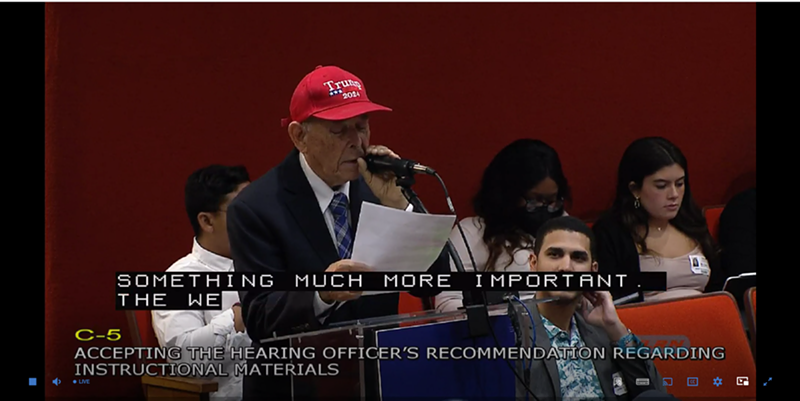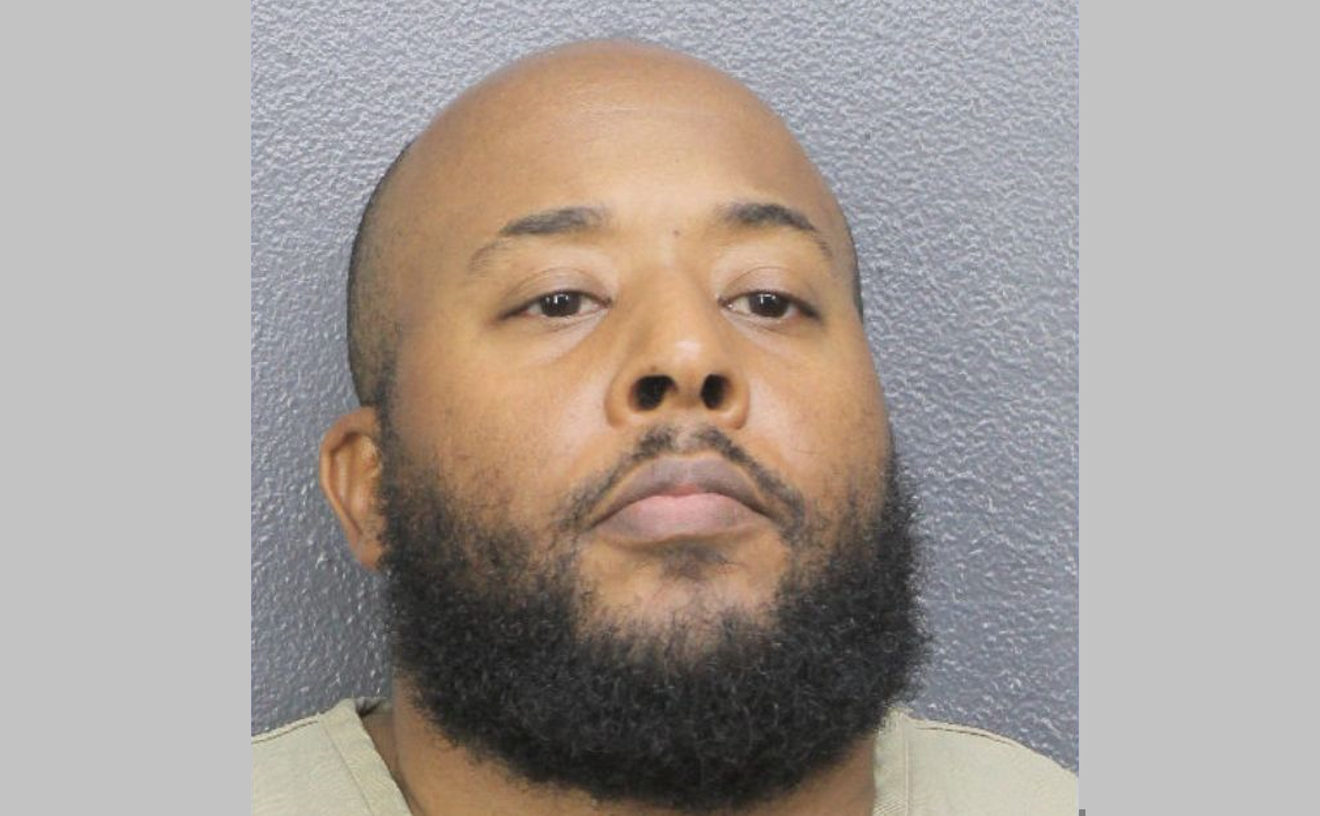Update published 7/26/2022: On Thursday, July 28, the Miami-Dade County school board will host a special meeting beginning at noon to discuss the impacts of its vote last week to reject sex-education textbooks and how it plans to remain in compliance with state guidelines.
Without any approved textbooks, middle and high schools in the county public school system can't offer courses in human reproduction and disease education, a curriculum requirement under Florida's academic standards. The agenda for Thursday's meeting suggests the board must now come up with a plan to remain in compliance with state requirements without the books.
Ahead of the meeting, a newly formed group calling itself Parents for Children Miami has created an online petition to show support for reproductive health and safety education in county schools. The group decries the board's decision to reject the books at the behest of petitioners who did not identify themselves as parents, teachers, or students.
The petition also reiterates a point made at last Wednesday's meeting: that if a parent does not want their child to participate in a sex education class at school, a Florida law enacted a year ago permits them to opt out of the course.
At the time of this update, the petition is more than 70 percent of the way to its goal of 500 signatures.
The original story follows below:
On Wednesday, July 20, following heated comments from advocates and opponents, the School Board of Miami-Dade County rejected two textbooks that have been at the center of a local controversy regarding sex education.
Back on April 13, the board voted to approve the use of Comprehensive Health Skills for Middle School and Comprehensive Health Skills for High School. But the decision raised the ire of local conservative groups who objected to lessons that touched on gender identity, birth control, and abortion. After receiving several hundred emailed complaints from residents who argued that the books aren't "age appropriate," the board convened additional meetings and had an independent hearing officer review the complaints and re-evaluate the texts. The hearing officer — who found that of the 278 complaints the school board received objecting to the books, only 44 were sent by people who identified themselves as parents of Miami-Dade County Public Schools (MDCPS) students — recommended that the school board approve the textbooks.
When the matter again came up for a vote on Wednesday, the board voted 5-4 to reject them.
The debate over the instructional materials comes amid a period of attacks against reproductive rights in the U.S. with the overturning of Roe v. Wade on the heels of the Florida legislature's passage of the Parental Rights in Education Act (popularly known as the "Don't Say Gay Bill"), which empowers parents to sue school districts over instructional material they don't agree with.
Opposition to the textbooks came from groups like County Citizens Defending Freedom and Moms for Liberty, which objected to chapters that dealt with abortion, gender identification, and "withdrawal" or "pulling out" as a means of contraception. County Citizens Defending Freedom outlined its concerns on a webpage wherein it deems the content "inappropriate."
Both groups are relatively new on the scene and position themselves as grassroots organizations. But both have pursued far-right political agendas — with funding from ultraconservative groups in Moms for Liberty's case — according to the progressive nonprofit watchdog group Media Matters for America.
"The issue that we’re having with the textbooks is the content is not age-appropriate. There’s content that discusses abortion, that discusses Plan B. This type of content is not age-appropriate for 11-year-olds or 12-year-olds," Eulalia Jimenez-Hincapie, chapter chair of Moms for Liberty Miami, tells New Times. Jimenez-Hincapie also took issue with the books' treatment of gender identities, which she said was a product of indoctrination.
Jimenez-Hincapie herself is a rising figure in Florida right-wing circles. She was featured last month on Cuban conservative pundit Alexander Otaola's YouTube show and appeared at a press conference last fall with Florida Gov. Ron DeSantis. She has pushed QAnon conspiracy theories online and shared homophobic and transphobic content, including the false rumor that the Uvalde elementary school shooter was a trans woman. (Jimenez-Hincapie tells New Times that when she learned the rumor was false, she took down her Telegram post about it and admitted it was "a mistake.")
At one point during Wednesday's discussion about the textbooks, the board interrupted the meeting for five minutes after an audience member yelled that "Antifa" was in the auditorium and harassing parents.
Those who spoke in support of the books included health professionals, biology teachers, leaders of the Miami-Dade County Council PTA/PTSA, and the local civic education group Power U Center for Social Change (Power U).
Student members and leaders of Power U, including reproductive justice director Brittany Frizzelle, lauded the textbooks as scientifically accurate and age appropriate and defended the material as a means to save students from sexually transmitted infections, unwanted pregnancies, and sexual assault.
"The more information kids have, the more prepared they are to take care of themselves," Frizzelle tells New Times. "And whether they want to be another gender or gender-nonconforming, that's everyone's right and personal choice. No one else should be in charge of determining what someone else does with their body."
Some stepped to the podium to point out that young people are going to seek out information about sex on their own, on the internet or from friends, and that a comprehensive health-science textbook at school would ensure they're getting accurate information from a trusted source.
School board members Christi Fraga, Lubby Navarro, Marta Pérez, Mari Tere Rojas, and chairwoman Perla Tabares Hantman voted to reject the hearing officer's recommendation.
The decision means that MDCPS students in middle and high school will not receive a course in human reproduction and disease education course unless the board approves a new set of books.
"It's clear that some members of the board care more about political charade than ensuring we are teaching a medically accurate, evidence-based curriculum," Frizzelle says, summing up the day's proceedings.
Education
Miami-Dade School Board Capitulates to Right-Wing Groups in Sex Ed Textbook Debate UPDATED
After heated debate from local parent and student groups, the Miami-Dade County School Board rejected two controversial comprehensive sex education books.

A speaker at the July 20, 2022, Miami-Dade County school board meeting who spoke in opposition to the motion to adopt textbooks on comprehensive sexual education.
Screenshot via Miami-Dade County Public Schools
[
{
"name": "Editor Picks",
"component": "17482312",
"insertPoint": "4",
"requiredCountToDisplay": "1"
},{
"name": "Inline Links",
"component": "18711090",
"insertPoint": "8th",
"startingPoint": 8,
"requiredCountToDisplay": "7",
"maxInsertions": 25
},{
"name": "Air - MediumRectangle - Combo - Inline Content",
"component": "17482310",
"insertPoint": "8th",
"startingPoint": 8,
"requiredCountToDisplay": "7",
"maxInsertions": 25
},{
"name": "Inline Links",
"component": "18711090",
"insertPoint": "8th",
"startingPoint": 12,
"requiredCountToDisplay": "11",
"maxInsertions": 25
},{
"name": "Air - Leaderboard Tower - Combo - Inline Content",
"component": "17482313",
"insertPoint": "8th",
"startingPoint": 12,
"requiredCountToDisplay": "11",
"maxInsertions": 25
}
]










